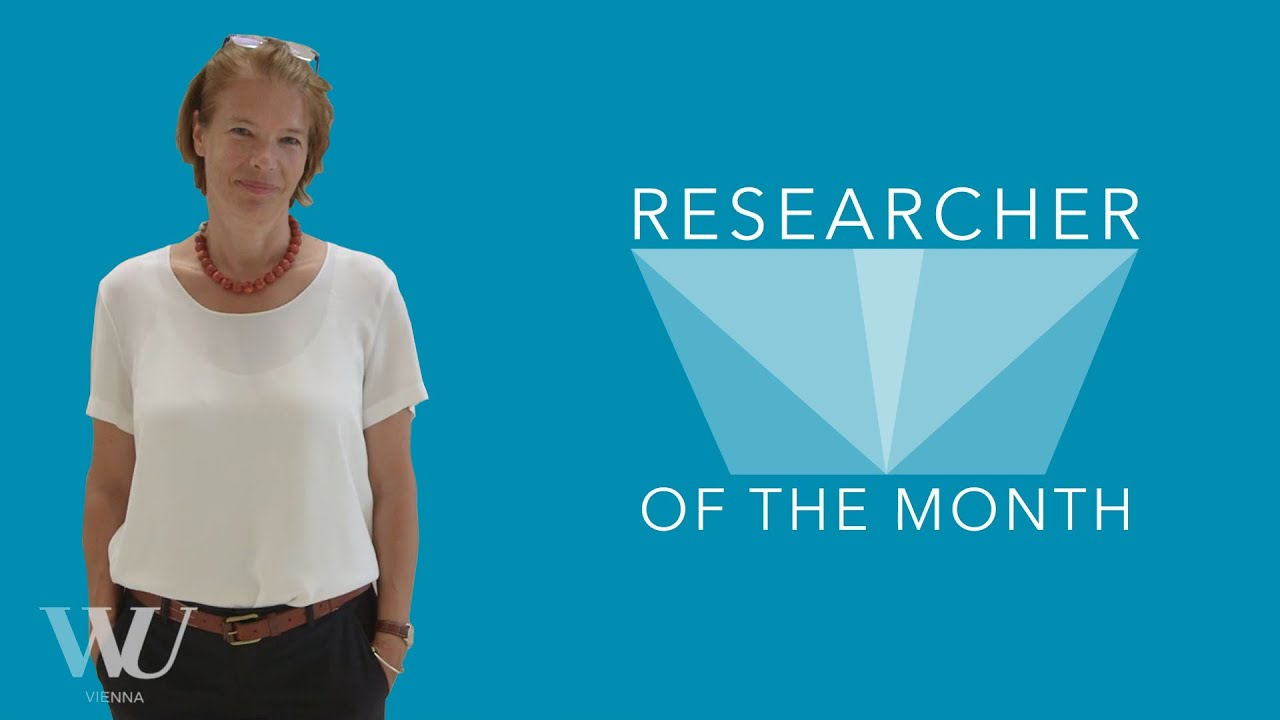Eva Eberhartinger

Eva Eberhartinger
Researcher of the Month
Tax avoidance in government-owned companies
The media reports almost daily on tax scandals involving multinational corporations. A current study by WU Professor Eva Eberhartinger shows that not even government-owned companies are always model taxpayers. The study’s results show that these companies also need incentives to prevent tax avoidance.
It’s certainly not news that major international companies like Apple or Google are constantly looking for ways to avoid paying taxes, for example by establishing subsidiary companies in tax havens. What’s more surprising, however, is that government-owned companies are also increasingly applying tax avoidance strategies, although one would assume that the state, in its role as a shareholder, would ensure that these companies pay their full share of taxes. WU Professor Eva Eberhartinger explains, “Prominent examples include the state-owned Dutch Railways, which use the loophole of a Dutch-Irish tax construction, or some German municipalities that attempt to save taxes by concluding leasing agreements with US investors.” When and how government-owned companies avoid paying taxes is the subject matter of the most recent study conducted by Eberhartinger, professor and head of the Business Taxation Group at WU, in cooperation with her colleague David Samuel.
State-owned companies need incentives, too
In her study, the researcher investigated the annual financial statements of publicly owned German companies (e.g. owned by municipalities, states, or the federal government). Based on an analysis of the profit and loss accounts, Eberhartinger and Samuel were able to identify companies displaying similar tax avoidance behavior to privately owned firms. “We found that not all government-owned companies try to avoid paying taxes. Tax avoidance is most likely to be found in those companies with insufficient supervision by the public owners, because this provides no added value for them,” says Eberhartinger. She continues, “The extent of active tax avoidance in a company depends mainly on the shareholder structure and governance mechanisms. Owners of companies in the public sector also need incentives, for example a share of tax revenues, to ensure that these companies also pay their full share of taxes. If these incentives are not provided, even government-owned companies will try to avoid paying taxes.”
Shareholder incentives instead of tax planning
The study makes it clear that financial incentives are an important deciding factor in publicly owned companies’ tax planning activities. A reduction in strategic tax planning is only seen in those companies in which the government shareholders profit from tax revenues. “Generally speaking, our study indicates that shareholder incentives are a key deciding factor in tax planning activities. Shareholder incentives in state-owned companies are a special case, because shareholders have two different claims on the company’s profits, i.e. both the tax revenues and the dividends. If state shareholders receive 100 percent of each of these entitlements, it shouldn’t matter whether it is paid as tax or as a dividend. However, the owners of public-sector companies do not always benefit directly from tax payments. Based on these different incentives, we can see that those owners who are directly entitled to tax revenues also see this as an incentive to ensure that these government-owned companies have less tax planning activity,” explains Eberhartinger.
The study also makes an important contribution to the current discourse on the nationalization of companies in the wake of the Coronavirus crisis. The study’s results provide political decision-makers with important information about the potential impact of nationalizations on corporate tax planning activities.
Eberhartinger, Eva and Samuel, David, Monitoring and Tax Planning – Evidence from State-Owned Enterprises (June 20, 2020). WU International Taxation Research Paper Series No. 2020-08.
Eva Eberhartinger

Eva Eberhartinger is a professor at WU’s Institute for Accounting & Auditing, head of the Business Taxation Group, and co-chair of the Doctoral Program in International Business Taxation (DIBT).
A native of Upper Austria, she studied business administration at the Johannes Kepler University Linz before earning both her doctorate and her venia docendi at WU, where she was awarded a number of prizes and scholarships for both. Prior to her position at WU, she was a full professor of business taxation at the University of Münster (Germany). She has gained international experience at the University of Exeter (UK), the University of Illinois at Urbana-Champain (US), HEC Paris (France), McGill University (Canada), HEC Montréal (Canada), the University of Malta, and Macquarie University, Sydney (Australia). In her research, she focuses on the effect of taxes on company decisions, in particular in multinational groups. Current projects include the effect of heuristics on the decision-making process in international tax planning, the relevance of income tax disclosure in financial statements, and the effects of cooperative compliance programs and tax audits on companies. She acted as Vice-Rector for Financial Affairs at WU from 2006 until 2011. In addition to her academic career, Eva Eberhartinger also holds a number of positions on supervisory boards and is a full member of the Austrian Financial Reporting and Auditing Committee (AFRAC).
